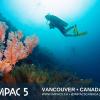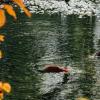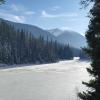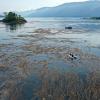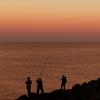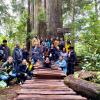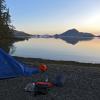If you care about protecting the ocean and the amazing creatures that inhabit it, there is no better place to be this February than Vancouver. That’s because many of the world’s leading experts on ocean conservation will be in town for the 5th International Marine Protected Areas Congress (IMPAC5).
Environmental Law Alert Blog
Through our Environmental Law Alert blog, West Coast keeps you up to date on the latest developments and issues in environmental law. This includes:
- proposed changes to the law that will weaken, or strengthen, environmental protection;
- stories and situations where existing environmental laws are failing to protect the environment; and
- emerging legal strategies that could be used to protect our environment.
If you have an environmental story that we should hear about, please e-mail Andrew Gage. We welcome your comments on any of the posts to this blog – but please keep in mind our policies on comments.
Last month, the West Coast team attended the UN Biodiversity Conference (aka COP15) in Montreal, where we pushed for meaningful action from our governments to better respect and protect nature.
At the recent UN Biodiversity Conference (COP15), Canada joined other countries in making ambitious commitments to protect nature.
On December 15th and 16th, Justice Ross of the BC Supreme Court heard from a wide range of applicants seeking permission to intervene in an important legal challenge launched by the Smgyigyetm Gitxaała and Gitxaała Nation (Gitxaała).
Reflections from our RELAW* Retreat: Indigenous Law in Story
(Retreat 1 of 3: November 14–17th, 2022)
*Revitalizing Indigenous Law for Land, Air & Water
West Coast lawyers are on the ground at the most important nature conference of the century
No matter where we come from, most of us want to care for the coast and ocean and the wildlife that call them home, and to leave a more abundant future for those to come.
The world has been seeing some alarming trends in food and nutrition security, and Canada is no exception.
Standing under the towering presence of a 600+ year old being, a hushed awe permeates the group. As we silently recognize the magnificence of this life form, I suspect I am not the only one who longs to hear the stories this tree carries.
Marine protected areas, or MPAs for short, are areas of the ocean that provide protection from harmful human activities and exploitation.

